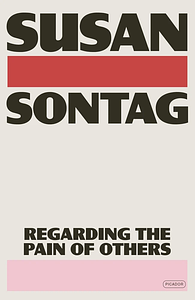You need to sign in or sign up before continuing.
Take a photo of a barcode or cover
informative
reflective
sad
slow-paced
returned to this book because I wanted to know how it would resonate today, when the role of the photojournalist has been democratized somewhat by social media and when images of atrocities are being posted online by journalists and civilians who are not tourists but people documenting the destruction of their own homes. Returned to this book because I go on Instagram every day and see the worst things I've ever seen, and so do many other people around the world, and what the fuck do you do with that?
Things have changed - the people whose documentation gets circulated, the ways it gets circulated, the volume, even the form (video is now accessible to anyone with a phone and I see far more videos out of Gaza than photos). I think much of this book does still apply, though. I think about this passage the most when I am at a loss for what to do with the images I see:
Things have changed - the people whose documentation gets circulated, the ways it gets circulated, the volume, even the form (video is now accessible to anyone with a phone and I see far more videos out of Gaza than photos). I think much of this book does still apply, though. I think about this passage the most when I am at a loss for what to do with the images I see:
It is because, say, the war in Bosnia didn't stop, because leaders claimed it was an intractable situation, that people abroad may have switched off the terrible images. It is because a war, any war, doesn't seem as if it can be stopped that people become less responsive to the horrors. Compassion is an unstable emotion. It needs to be translated into action, or it withers. The question is what to do with the feelings that have been aroused, the knowledge that has been communicated.I act because I care, but also to tend my own compassion and make sure it doesn't die out. Compassionate witnessing and action feed into each other. I think it's important to look, and important to remember - haven't we been tasked specifically with remembering? - but if that's all we do, nothing changes and we get apathetic and hopeless. I still don't know if I'm doing the right things. I go on Instagram a lot less than I used to, and I don't go to every march. I'm not sure what my role is as a person watching from far away, but this passage helps clarify that for me a bit, spurs me to action, helps me remember that I cannot effect change purely by watching, that an image will not change me unless I let it. I'm an artist and whatever and believe in the power of the image, but that power is not absolute or incorruptible. Anyways. I like this book. Free Palestine.
dark
reflective
slow-paced
challenging
informative
reflective
slow-paced
informative
reflective
At times she seems to demonstrate a lack of generosity/grace to victims of war and violence (people of Sarajevo). Maybe all of her conclusions were right, but still a little jarring to a read in the context. At the same time super insightful and interesting.
“The exhibition in photographs of cruelties inflicted on those with darker complexions in exotic countries continues this offering, oblivious to the considerations that deter such displays of our own victims of violence; for the other, even when not an enemy, is regarded only as someone to be seen, not someone (like us) who also sees.”
“The exhibition in photographs of cruelties inflicted on those with darker complexions in exotic countries continues this offering, oblivious to the considerations that deter such displays of our own victims of violence; for the other, even when not an enemy, is regarded only as someone to be seen, not someone (like us) who also sees.”
informative
inspiring
fast-paced
challenging
emotional
informative
informative
reflective
medium-paced
challenging
reflective
medium-paced
challenging
informative
reflective
fast-paced



